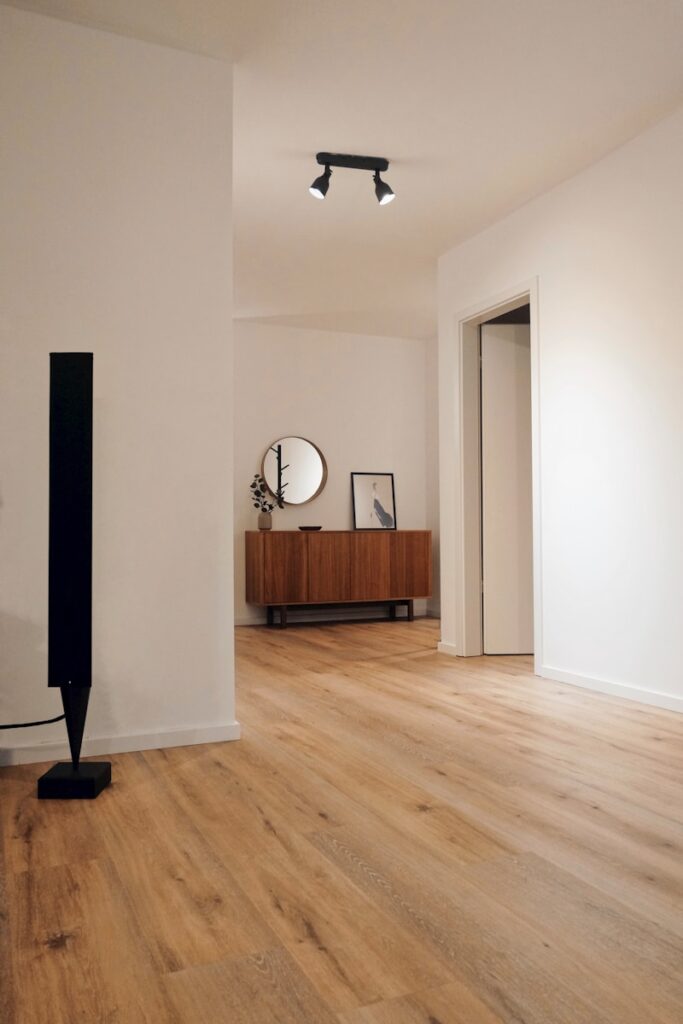
In the quest for cozy and efficient heating solutions, floor heating systems have emerged as a popular choice for homeowners. These systems, also known as radiant floor heating, offer warmth from beneath, providing a comfortable and even distribution of heat. In this article, we will delve into the types of floor heating systems, their benefits, and whether they contribute to increasing a home’s value.
Types of Floor Heating Systems
- Hydronic Floor Heating: Hydronic floor heating systems utilize warm water circulated through a network of pipes beneath the floor. This method is known for its energy efficiency, as water is an excellent heat conductor. The system is compatible with various flooring materials, making it a versatile choice for both new constructions and retrofits.
- Electric Floor Heating: Electric floor heating systems use electric cables or mats installed beneath the floor to generate heat. This type of system is easier to install and is often preferred for smaller spaces like bathrooms or kitchens. It can be an effective solution for targeted heating in specific areas of a home.
Benefits of Floor Heating Systems
- Comfortable and Even Heat Distribution: One of the primary advantages of floor heating systems is the even distribution of warmth throughout the room. Unlike traditional heating methods that may result in hot and cold spots, radiant floor heating ensures a consistent and comfortable temperature across the entire floor.
- Energy Efficiency: Hydronic floor heating systems, in particular, are lauded for their energy efficiency. The slow release of heat from the floor minimizes energy waste, as the system can be operated at lower temperatures while still providing effective heating. This can lead to energy savings and reduced utility costs over time.
- Space Saving and Design Flexibility: Unlike bulky radiators or visible vents, floor heating systems are discreet and don’t require valuable wall space. This design flexibility allows homeowners to arrange furniture without limitations and maintain a clean, uncluttered aesthetic.
- Enhanced Indoor Air Quality: Another noteworthy benefit of floor heating systems lies in their positive impact on indoor air quality. Unlike traditional heating systems that can stir up dust and allergens, floor heating operates silently without the need for air circulation. This reduces the circulation of airborne particles, creating a healthier and cleaner living environment. By eliminating the need for forced-air systems, floor heating contributes to a more comfortable and allergen-friendly atmosphere, particularly beneficial for individuals with respiratory conditions or allergies. This often overlooked advantage adds a layer of health-conscious appeal to the overall benefits of radiant floor heating.
Increasing Home Value with Floor Heating Systems
- Desirable Feature for Homebuyers: Radiant floor heating is often considered a premium feature by potential homebuyers. The luxurious feel of heated floors can be a significant selling point, especially in colder climates. Homes equipped with floor heating systems may attract more interest and potentially command a higher price in the real estate market.
- Energy Efficiency Appeal: As energy efficiency becomes a key consideration for homeowners, having a floor heating system can be an attractive feature. Potential buyers may see the system as a modern and eco-friendly addition, further adding to the overall appeal and perceived value of the property.
Conclusion
For homeowners seeking optimal comfort and efficiency in heating solutions, floor heating systems stand out for their seamless blend of warmth and aesthetic appeal. Whether choosing a hydronic or electric system, the advantages of consistent heat distribution, energy efficiency, and the freedom to design living spaces creatively make these systems a wise investment.












